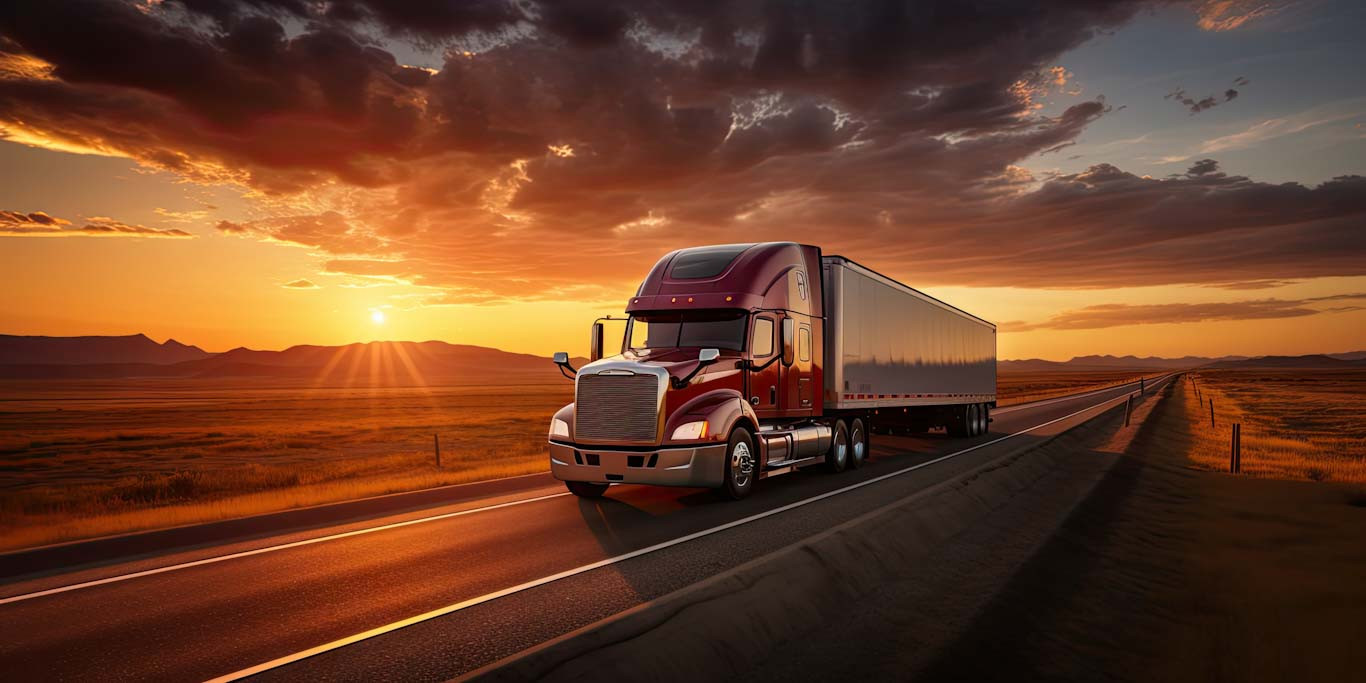So You Want to Be Your Own Boss? The Real Deal on Becoming a Trucking Owner Operator
Sep 19, 2025 in Tips and TricksLet me tell you something – after watching dozens of drivers make the jump from company man to owner operator over the years, I've seen it all. The success stories, sure, but also the spectacular failures that'll make your wallet weep. If you're sitting in that company truck right now, dreaming about being your own boss, pump the brakes for a minute. We need to talk.
The Money Talk Nobody Wants to Have
Here's the cold, hard truth that nobody tells you at truck shows: you're gonna need serious cash, and I mean more than you think. That shiny Peterbilt you're eyeing? It's not just the sticker price that'll get you.
I've watched guys blow through their life savings thinking $30,000 was enough to get started. Wrong. Dead wrong. You're looking at needing anywhere from $75,000 to $200,000 just to get rolling, depending on whether you're buying used or going for that new truck smell.
Here's what actually empties your bank account:
- That truck payment (or the chunk of change if you're buying outright)
- Insurance that'll make you question your life choices – we're talking $15,000-$25,000 a year
- Your operating authority, permits, and all that lovely paperwork
- The ELD system because Big Brother's watching
- Tools, chains, straps, and all the gear you didn't think about
- Fuel to get your first loads (yeah, you gotta pay upfront)
And here's the kicker – you better have at least $15,000-$30,000 sitting in the bank for when things go sideways. And trust me, they will. That transmission's gonna blow in the middle of nowhere, Colorado, on a Sunday, and it's gonna cost you $8,000. Ask me how I know.
The Insurance Nobody Talks About Until It's Too Late
Here's something that'll keep you up at night once you know about it – non-trucking liability insurance, or as we call it, bobtail insurance. This is the coverage that protects you when you're driving your truck but not hauling freight and using it as a personal vehicle. Sounds simple enough, right? Wrong.
Here's the deal: your primary liability insurance only covers you when you're working for the motor carrier – when you're hauling a load or heading to pick one up. Working for the motor carrier includes you're deadheading home for the weekend. or running to the truck stop for fuel without a trailer? Same if you're driving to the shop to get something fixed.
I've seen guys get into fender-benders while bobtailing to get groceries, or tranporting your personal items, thinking their regular liability would cover them. Nope. That million-dollar policy you're paying through the nose for? Worthless when you're not on dispatch. Now you're looking at paying for damages out of your own pocket, and if someone gets hurt, you could lose everything you own.
The scary part is how often you're actually bobtailing without thinking about it. Every time you drop a trailer and drive somewhere, every personal errand – you're exposed. And Murphy's Law says that's exactly when some four-wheeler's gonna rear-end you.
Bobtail insurance isn't crazy expensive – we're talking a few hundred to maybe a thousand bucks a year depending on your driving record and coverage limits.
Don't be the guy who finds out about this gap in coverage the hard way. Trust me, sleeping in your own bed is a lot more comfortable when you know you're actually covered driving there.
You're Not Just a Driver Anymore, Cowboy
This is where most guys crash and burn. They think being an owner operator means you just drive your own truck instead of someone else's. Nope. You're running a business now, which means you're the CEO, CFO, mechanic, customer service rep, and janitor all rolled into one.
The Business Side That'll Eat Your Lunch: Every successful owner op I know treats this like a real business, not some hobby with wheels. You're gonna be buried in spreadsheets, tracking every penny that comes in and goes out. If you can't tell me your cost per mile down to the cent, you're already losing money.
Wrenching Wisdom: You don't need to rebuild engines in truck stop parking lots, but you better know the difference between a blown turbo and a bad fuel filter. The guys who make it are the ones who can spot trouble before it becomes a $10,000 problem. Learn your truck inside and out, or learn to go broke fast.
Playing Politics: Here's something they don't teach in trucking school – half this business is kissing ass and networking. That dispatcher who gives you the good loads? Better believe he's got five other drivers calling him every day. The shipper who loads you fast because you bring donuts? That's money in the bank. Relationships pay the bills in this game.
Pick Your Poison: How You Wanna Lose Sleep
You've got choices in how you want to torture yourself:
Leasing to a Company: This is training wheels for owner operators. The company finds your freight, handles the paperwork, and holds your hand through most of the business stuff. Sounds great, right? Sure, until you realize they're keeping a big chunk of your earnings for the privilege. But hey, it's steady money and you won't go crazy chasing loads.
Your Own Authority: This is the Wild West, partner. You get your own MC number, find your own freight, and keep all the money (minus Uncle Sam's cut, of course). Higher rewards, but also higher chances of eating ramen for dinner because freight's been slow for two weeks straight.
Going Specialized: Flatbed, reefer, hazmat, oversized – these niches can pay serious money, but they come with their own headaches. Ever tried tarping a load in a Wyoming wind storm at 2 AM? It builds character. And bank accounts, if you stick with it.
The Stuff Nobody Talks About at Truck Stops
Your Paycheck's Got Mood Swings: Forget that steady company paycheck. Some weeks you'll feel like you're printing money. Other weeks you'll wonder if you should've stayed in school. The freight market's more unpredictable than Midwest weather, and just as likely to ruin your plans.
Paperwork Hell: You thought logbooks were bad? Wait until you're dealing with quarterly taxes, fuel tax reports, insurance claims, and permit renewals. I know guys who spend more time shuffling papers than turning wheels. Get yourself a good accountant or learn to love spreadsheets.
When Your Office Breaks Down: Company drivers call dispatch when their truck won't start. Owner ops call their bank to see how much credit they've got left. Your truck's not just transportation – it's your livelihood, your office, and your biggest expense all wrapped up in 80,000 pounds of steel and aluminum.
What the Winners Do Different
After watching this rodeo for years, the guys who make it all have a few things in common:
They're Cheap, But Smart About It: They track every dime like their life depends on it (because it does). They know exactly what it costs to turn that key, and they don't take loads that lose money. Period.
They Network Like Politicians: The best owner ops I know have phone numbers for reliable brokers in every major market. They've got mechanics they trust in every region they run. They tip dock workers and remember dispatchers' kids' names. This business runs on relationships.
They Stay Legal: The DOT doesn't care that you're an independent businessman trying to make ends meet. One bad inspection can shut you down for weeks. The guys who last are the ones who dot every 'i' and cross every 't' on their logs, inspections, and paperwork.
They Embrace the Tech: I get it – some of you old-school guys think load boards and route optimization software are for rookies. But the smart money is using every tool available. The guy with the best apps and software is getting the better loads while you're still calling brokers from truck stop payphones.
Reality Check Time
Look, I'm not trying to scare you off, but I'm not gonna blow sunshine up your exhaust pipe either. This business will chew you up and spit you out if you're not ready for it.
You'll have weeks where everything breaks at once. Customers who don't pay on time. Brokers who lie about rates. Weather that shuts you down for days. Family who don't understand why you can't just "get a normal job."
But here's the thing – and this is why guys keep doing it despite all the headaches – when it works, it really works. I know owner ops pulling down $200,000+ a year. I know guys who've built this into multi-truck operations that run themselves. The freedom to tell a bad customer to pound sand? That's worth something.
Getting Your Ducks in a Row
If you're still reading and haven't run away screaming, here's your homework:
Get Some Miles Under Your Belt First: Don't go independent with six months of experience. Get out there, learn the roads, the customers, the markets. Two to three years minimum before you even think about buying your own truck.
Fix Your Credit: That 580 credit score isn't gonna cut it. Banks don't finance trucks for guys who can't manage their personal finances. Clean up your credit, pay down debt, and show them you're responsible with money.
Stack That Cash: Start living like a broke college student while you're still making company driver money. Every dollar you save now is a dollar that might keep you from losing your truck later.
Learn the Business: Read trucking magazines, join owner operator forums, go to truck shows and actually listen to the seminars instead of just looking at the pretty trucks. Knowledge is power, and ignorance is expensive.
Make a Plan: Where do you want to be in five years? Ten years? Just driving until your back gives out, or building something bigger? Having a plan makes all the difference between running a business and just owning an expensive hobby



